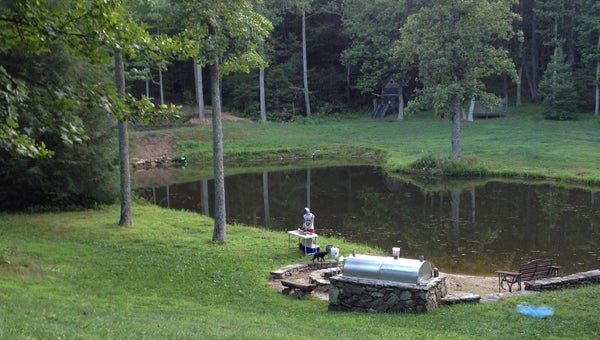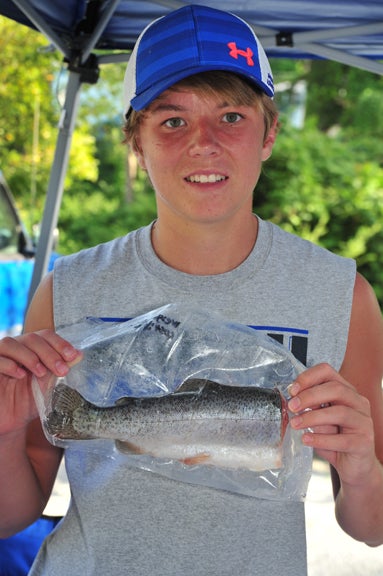Tyler Harris: Young entrepreneur
Published 8:00 pm Friday, July 31, 2015
By Mark Schmerling
Nestled among the vendors at the tailgate markets in Saluda and Columbus is Blue Ridge Mountain Trout, where three Polk County teens have created a business model that generates independent income, and provides fresh, delicious food to area residents and visitors.
Tyler Harris and Austin Wilson, both 15, have trout ponds near Saluda and Sunny View, respectively. Those two young entrepreneurs, aided by a third teen, Jared Wolfe, did not rush headlong into the venture.
Wolfe helps Tyler Harris clean, prepare and sell the trout weekly.
“We’ve had the pond for 10 years,” said Tyler Harris, of his family’s pond, adding that the young men just began selling the fish this spring.
Young Harris said he and Wilson had the idea to sell fish. Both had ponds.
“So, we started raising them (trout),” Harris noted.
“We researched it a lot,” he added. “I researched it hours a day. We researched other trout ponds, to see how it was done.”
Rainbow trout are the fish of choice, Harris noted.
“They’re easier to raise than other trout species. We didn’t want to raise catfish, because everyone does that,” said Harris.
Trout of any species need lots of dissolved oxygen—more than some other species of fish. Mortality factors, Harris said, include otters, snapping turtles and a great blue heron. The youth have been able to scare off the heron when they spot it nearby.
Health issues have not been concerns, Harris said.
“As long as we’re feeding them, they’re healthy.”
“Right now, we have about 500 trout,” Harris continued, adding that the pond can handle up to about 2,000. Wilson’s Sunny View pond is smaller, but still carries some 500 trout. Both purchase their stock from the same source.
Trout are purchased when they’re about six to eight inches long, and harvested for sale when they reach some 12-16 inches, considered an excellent eating size. If demand rises, the youths can purchase eating-size trout from their supplier.
Tyler Harris said they harvest trout by weighted cast nets, “pretty heavy” affairs that are thrown over groups of fish. He generally catches about 30-40 fish per cast about enough for the two tailgate markets, depending on how well he throws it, he said.
Fish are immediately processed, vacuum packed, and quick-frozen, to preserve freshness and avoid any “fishy” flavor. Tyler said he processes fish twice a week, depending on orders.
In addition to the two tailgate markets, the youths sell their trout to Polk Fresh Foods at the agriculture center in Mill Spring.
These days, about 65 percent of trout sales are at the two tailgate markets. Other sales are by special orders.
“We’ll be looking at wholesale markets,” Harris added.
Before 2015, Harris and Wilson raised trout for themselves. Available time has enabled them to transition to a retail business.
“We have plenty of free time,” Harris noted.
What lessons have they learned?
“I have to make sure I have money (to turn back into the business),” Harris said, noting that he’s learned much about cash flow.
“It feels good to make your own money, and not have to work for someone. We’re definitely going to do this through high school,” he added. “It’s a fun business.”
# # #







